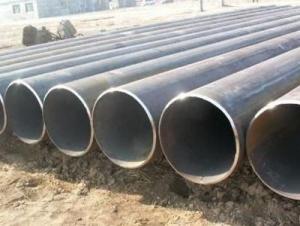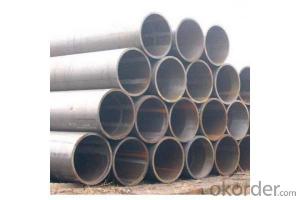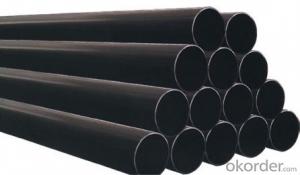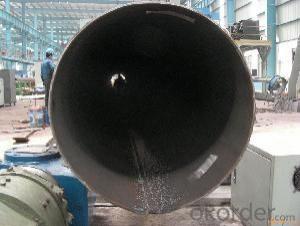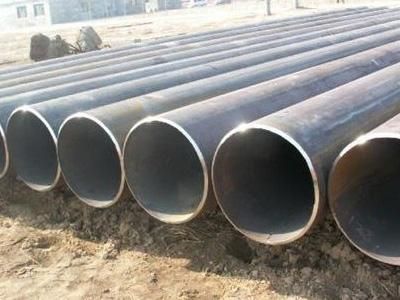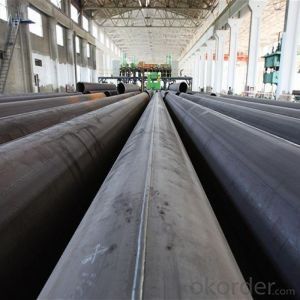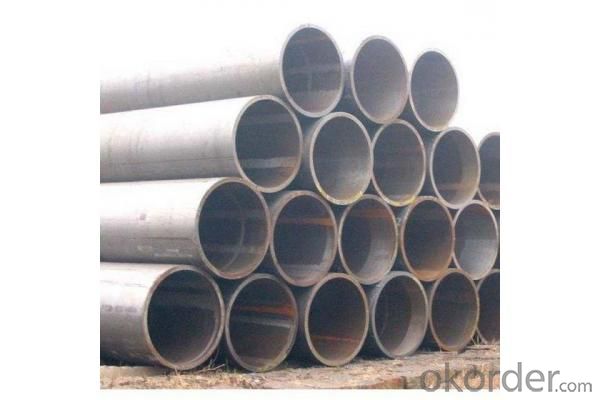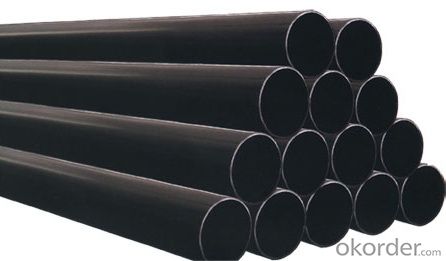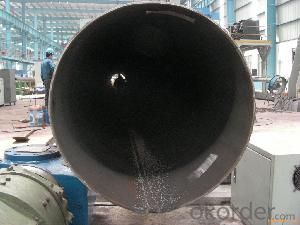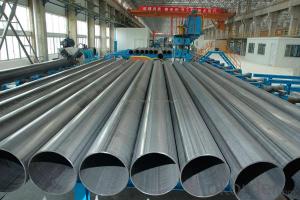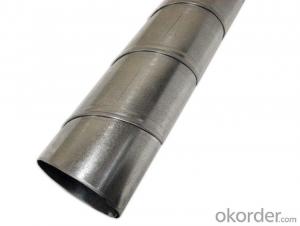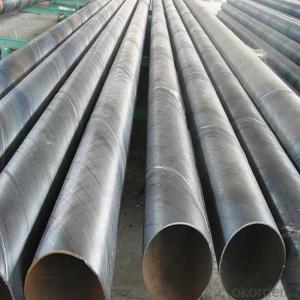LSAW SSAW CARBON STEEL PIPE ASTM API 14''
- Loading Port:
- Tianjin
- Payment Terms:
- TT OR LC
- Min Order Qty:
- 1 m.t.
- Supply Capability:
- 3000 m.t./month
OKorder Service Pledge
OKorder Financial Service
You Might Also Like
Packaging & Delivery
Packaging Detail: | Normal exporting packing,in container or bulk vessel or as per clients' request |
Delivery Detail: | 2 months after confimed contract |
Specifications
Large Diameter API 5L X70 PSL2 LSAW Steel Pipe
Grade: X42, X46, X50, X52, X60, B, C
OD: 1.5"-28"
WT: SCH10-SCH160
Large Diameter API 5L X70 PSL2 LSAW Steel Pipe
Specifications:
u Standard: API 5L
u Grade: B, C, X42, X46, X50, X52, X56, X60, X65, X70, X80
u OD: 1.5"-28"
u WT: SCH10-SCH160
u Length: 5-12m
u Ends Finish: plain end, bevel end, grooved end
u Surface Treatment: bare, black varnished, oiled finish, red color, anti-corrosion, 3PE, FBE or epoxy coating
u Technique: hot rolled or cold drawn
u Application: api 5l steel pipe for conveying oil, water, gas
u Invoicing: based on theoretical weight or actual weight
u Payment Terms: L/C at sight, T/T or Western Union
u Trade Terms: FOB, CFR, CIF
u Certification: ABS manufacturing assessment, ABS design assessment, API 5CT, API 5L, DNV manufacturer certificate, ISO9001 quality management system certificate, ISO14001 environment management system certificate, GB/T28001 occupational health and safety management system certificate, A1 class manufacturing license of special equipment certificate, CCS, GL, LR, SGS, TüV, PDE
- Q: What is the outer diameter and wall thickness of the welded steel pipe of national standard DN250?
- DN250 is the nominal diameter, the outer diameter of the steel pipe is 273mm, the thickness is above 6.5mm.
- Q: What is the difference between steel pipes and PVC pipes?
- The main difference between steel pipes and PVC pipes lies in their material composition. Steel pipes are made of a durable and strong metal alloy, while PVC pipes are made of a lightweight and flexible plastic called polyvinyl chloride. Steel pipes are typically used for heavy-duty applications that require high strength and resistance to extreme temperatures and pressure, such as in industrial settings or for transporting liquids or gases over long distances. On the other hand, PVC pipes are commonly used for residential and commercial plumbing systems due to their affordability, ease of installation, and resistance to corrosion. Additionally, PVC pipes are not suitable for high-pressure applications and have a lower heat tolerance compared to steel pipes.
- Q: How are steel pipes protected against soil movement?
- Steel pipes are protected against soil movement through various methods such as using casing pipes, employing anchor systems, implementing protective coatings, and utilizing concrete thrust blocks. These measures ensure that the steel pipes remain stable and secure in the event of soil movement.
- Q: What are the common applications of steel pipes in industrial settings?
- Steel pipes are commonly used in industrial settings for various applications such as transporting fluids and gases, providing structural support in construction projects, conveying materials in manufacturing processes, and facilitating the distribution of water, oil, and gas in pipelines.
- Q: Can steel pipes be used for irrigation pivot systems?
- Yes, steel pipes can be used for irrigation pivot systems. Steel pipes are often used in irrigation systems due to their strength, durability, and resistance to corrosion. They can withstand the pressure and stress of the water flow in pivot systems and are less prone to leaks or cracks compared to other materials. Additionally, steel pipes can be easily welded or threaded together, making them a convenient choice for irrigation systems that require a variety of lengths and configurations. However, it is important to consider the specific requirements of the irrigation pivot system and consult with professionals to ensure that the chosen steel pipes are suitable for the specific application.
- Q: What are the different standards and specifications for steel pipes?
- There are several different standards and specifications for steel pipes, depending on their intended use and application. Some of the commonly used standards include ASTM A53, ASTM A106, ASTM A333, and API 5L. These standards define various aspects such as the chemical composition, mechanical properties, dimensions, and testing requirements for steel pipes. Additionally, specific industries may have their own specifications, such as ASME B36.10 for seamless and welded steel pipes used in piping systems.
- Q: What are the factors to consider when selecting the right steel pipe for a specific application?
- When selecting the right steel pipe for a specific application, there are several factors to consider. These include the type of fluid or gas that will flow through the pipe, the temperature and pressure conditions of the application, the size and diameter requirements, the level of corrosion resistance needed, the cost and availability of the steel pipe, and any specific industry standards or regulations that must be followed.
- Q: Can steel pipes be used for water treatment plants?
- Yes, steel pipes can be used for water treatment plants. Steel pipes are commonly used for conveying water in various industries, including water treatment plants, due to their durability, strength, and resistance to corrosion. Additionally, steel pipes can withstand high-pressure water flows and can be easily welded, making them suitable for the demanding requirements of water treatment processes.
- Q: How are steel pipes classified based on their thickness?
- Steel pipes are classified based on their thickness into three categories: standard, extra strong, and double extra strong.
- Q: Are steel pipes suitable for food processing facilities?
- Yes, steel pipes are suitable for food processing facilities. Steel is a durable and hygienic material that is resistant to corrosion, making it ideal for transporting food products and maintaining their quality and safety. Additionally, steel pipes are easy to clean and disinfect, further ensuring sanitation standards in food processing facilities.
Send your message to us
LSAW SSAW CARBON STEEL PIPE ASTM API 14''
- Loading Port:
- Tianjin
- Payment Terms:
- TT OR LC
- Min Order Qty:
- 1 m.t.
- Supply Capability:
- 3000 m.t./month
OKorder Service Pledge
OKorder Financial Service
Similar products
Hot products
Hot Searches
Related keywords
